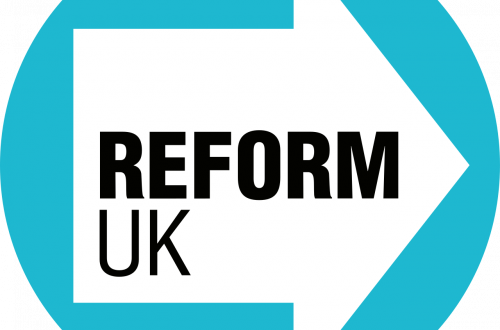This is a guest post by Shiraz Maher
Alaa al-Aswany is a good novelist. I enjoyed the Yacoubian building, a clever and witty exposition of Egypt after the rise of Nasser. Aswany’s writing has sensitively chronicled modern Egypt ever since. All this makes his paranoid ramblings in the Guardian on Monday even more disappointing.
He argues the West is inherently hostile to Islam, fuelled by a series of double standards and inconsistencies. Unfortunately, the arguments he offers are little more than straw men.
For example, Aswany writes:
Elections recently took place in Iran and the winner was President Ahmadinejad. But there were allegations of vote-rigging. Western governments were up in arms, issuing strongly worded statements in support of democracy in Iran.
Yet Egyptian elections have been rigged regularly for many years and President Mubarak has taken office through rigged referendums, so why hasn’t that provoked such anger? The outcry is not to promote democracy but rather to embarrass the Iranian regime, which is hostile towards Israel and trying to develop its nuclear capabilities, which are a threat to western imperialism. The Egyptian government, on the other hand, in spite of being despotic and corrupt, is obedient and tame, so the western media overlook its faults, however horrendous they might be.
When the young Iranian woman called Neda Soltan was shot by an unknown assailant, her death quickly became global headline news. Western politicians were so moved that even President Obama, close to tears, said that it was heartbreaking. A few weeks later in the German city of Dresden, an Egyptian woman called Marwa el-Sherbini was attending the trial of a man who racially abused her because she was wearing a hijab. Fined €2,800 for insulting her, the extremist then went on a rampage, attacking Marwa and her husband with a knife. Marwa died on the spot.
The murder of Marwa and the murder of Neda should be seen as crimes of equal barbarity and of equal impact. But the murder of the Egyptian woman in the hijab did not break Obama’s heart and did not receive front-page coverage in the west. The murder of Neda incriminates the Iranian regime, whereas the murder of Marwa shows that terrorism is not confined to Arabs and Muslims – a white German terrorist kills an innocent women and tries to kill her husband simply because she is Muslim and wears a hijab. The western media do not care to convey this message.
This is a wholly inaccurate reading of the way these events have panned out.
It was not ‘the West’ that first accused Ahmadinejad of rigging elections – it was the millions of ordinary Iranians taking to the streets in Tehran and beyond asking: ‘Where’s my vote?’ that attracted global attention. Even then, Obama’s administration could only bring itself to offer the tamest of support for pro-democracy campaigners in Iran, saying:
We call on the Iranian government to stop all violent and unjust actions against its own people. The universal rights to assembly and free speech must be respected, and the United States stands with all who seek to exercise those rights.
This is where Aswany gets it completely wrong. He says the West wanted to ‘embarrass the Iranian regime’. However, the Whitehouse actively steered away from anything that could be seen as ‘interfering’ in Iranian events.
In fact, Obama appears to have been so sensitive to accusations of interfering with – let alone ‘embarrassing’ – the Iranians that he ended up horribly mishandling events in Iran. In the process, our own Foreign Office was just as bad. Both the US and the UK were notably mute on developing crisis, displaying a misplaced deference to Ahmadinejad and the robed rogues who surround him.
However, the key point is that whatever developed in Iran after the elections principally came from the Iranian people themselves. Western leaders and the media were only responding to those events.
This is where the Iranian elections are entirely incomparable to events in Egypt. Elections there are certainly rigged too, but there has been no outrage, protest and popular dissent on the streets of Cairo on a comparable level to what we’ve seen in Iran. Had there been, Aswany could have expected an almost identical reaction – support for indigenous and organic democratic forces rebelling against an otherwise despotic regime. But, it is not for the West to engineer, incite or instigate this sentiment for change. It must come from within.
Most troubling about Aswany’s claims however, is the assertion that the West only concerns itself with Iran because of its belligerence towards Israel and plans to acquire nuclear weapons which, as he puts it ‘are a threat to western imperialism’.
It is clear to almost everyone – including a number of Sunni-Arab regimes, of which Aswany’s native Egypt is one – that a nuclear armed Iran is a threat to the entire world, given the propensity of its leaders to espouse apocalyptic narratives.
And, while Ahmadinejad threats to wipe Israel off the map today, why should we in Britain believe he intends anything but the same for us? Ever since the post-electoral turmoil in Iran started he has repeatedly singled out Britain for alleged ‘interference’, expelling our diplomats and arresting Iranians who worked at the British embassy. This hostility is not new. In 2007 Iran arrested and detained Royal Navy servicemen who were patrolling Iraqi waters.
Finally, as if to underscore the West’s alleged bias against Islam Aswany compares the reaction to the brutal murders of Neda Soltan and Marwa el-Sherbini. Both of these deaths are horrific and deserve outright condemnation. Both women should still be alive today. This is perhaps the only point at which I agree with Aswany – yes, both crimes are of equal barbarity. But they cannot be said to be of equal impact.
Neda was gunned down in the street by a member of the Basij, part of Iran’s state apparatus in an authorised government clampdown against protesters. Her murder was state sanctioned and her killer acted with impunity. Her parents will never get their day in court. They will never see justice.
By contrast, Marwa’s murder was neither state sanctioned, nor condoned. It was the horrific action of a racist who undoubtedly harboured a deep prejudice against Islam and Muslims. For that alone, he was already (and rightly) in court, facing charges of racial discrimination. That he then murdered her only underscores the depth of his hatred, not that of the German state.
There is a world of difference between a lone racist who murders and state sanctioned killing. Both might result in the unjust murder and oppression of an innocent person, but there is a difference in degree here that cannot be overlooked.
The failure to appreciate that sleight feeds the misjudgements on which Aswany’s piece is based. He is not comparing like-for-like.


